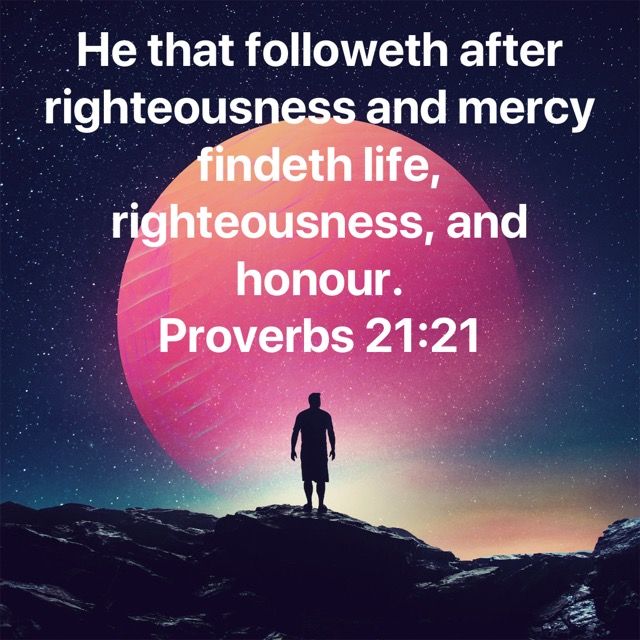THE SEED
“He that followeth after righteousness and mercy findeth life, righteousness, and honour.” — Proverbs 21:21 (KJV)
Righteousness is simply living in a way that aligns with God’s moral and just nature. It is not based on human effort but is a gift given through faith in Jesus Christ. God has graciously provided His Word as a guide to righteousness. Through the Bible, we receive His truth, wisdom, and grace, which help us navigate this life. The righteous paths of the Lord are revealed to those who seek Him diligently.
However, history shows that many before us strayed from righteousness. The Israelites, for example, often turned away from God, indulging in sin and idolatry, which led to His judgment. the Bible reminds us not to follow in their footsteps by lusting after evil things, engaging in immorality, or testing the Lord. Instead, we are to walk in obedience and righteousness, knowing that God has called us to a higher standard of righteous living. Righteousness is not just about avoiding sin; it is about actively pursuing what is good, just, and pleasing to God.
When we seek righteousness and mercy, we find life and honour in Him.
BIBLE READING: 1 Corinthians 10:5-11
PRAYER: Lord, help me to follow Your path of righteousness. Strengthen me to walk according to Your Word and remain faithful to You all my days in Jesus name. Amen.
OHUN TÓ LÈ RÀN WÁ LỌ́WỌ́ LÁTI JẸ́ OLÓDODO
IRUGBIN NAA
“Ẹni tí ó bá ń lépa òdodo àti àánú yóò rí ìyè, òdodo àti ọlá.” Òwe 21:21 (KJV)
Ìwà òdodo wulẹ̀ jẹ́ gbígbé ìgbésí ayé lọ́nà tó bá ìwà rere àti ìdájọ́ òdodo Ọlọ́run mu. Kì í ṣe nítorí ìsapá ẹ̀dá èèyàn la ṣe ń rí i gbà, àmọ́ ẹ̀bùn ni, a sì ń rí i gbà nípasẹ̀ ìgbàgbọ́ nínú Jésù Kristi. Ọlọ́run ti fi inú rere pèsè Ọ̀rọ̀ rẹ̀ gẹ́gẹ́ bí atọ́nà sí òdodo. Nípasẹ̀ Bíbélì, a gba òtítọ́ Rẹ̀, ọgbọ́n, àti oore-ọ̀fẹ́ Rẹ̀, èyí tí ó ń ràn wá lọ́wọ́ láti rìn nínú ìgbésí ayé yìí. Àwọn ọ̀nà tí ó tọ́ ti Olúwa ni a fi hàn fún àwọn tí ó ń wá a lójú méjèèjì. Àmọ́ ṣá o, ìtàn fi hàn pé ọ̀pọ̀ èèyàn aṣáájú wa ló ti ṣáko lọ kúrò nínú òdodo. Bí àpẹẹrẹ, ọ̀pọ̀ ìgbà làwọn ọmọ Ísírẹ́lì kọ Ọlọ́run sílẹ̀, tí wọ́n bẹ̀rẹ̀ sí í dẹ́ṣẹ̀, tí wọ́n sì ń bọ òrìṣà, èyí sì mú kí Ọlọ́run dá wọn lẹ́jọ́. Kàkà bẹ́ẹ̀, a gbọ́dọ̀ máa rìn nínú ìgbọràn àti òdodo, ní mímọ̀ pé Ọlọ́run ti pè wá sí apá ìdiwọ̀n gíga jù lọ fún gbígbé ìgbésí ayé òdodo. Kì í wulẹ̀ ṣe pé kéèyàn yẹra fún ẹ̀ṣẹ̀ nìkan ni òdodo túmọ̀ sí; ó tún túmọ̀ sí pé kéèyàn máa fi tọkàntọkàn lépa ohun tó dára, tó jẹ́ òdodo, tó sì ń múnú Ọlọ́run dùn. Nígbà tí a bá ń wá òdodo àti àánú, a rí ìyè àti ọlá nínú Òun.
BIBELI KIKA: 1 Kọ́ríńtì 10:5-11.
ADURA: Olúwa, ràn mí lọ́wọ́ láti tẹ̀lé ipa ọ̀nà òdodo Rẹ. Fún mi lágbára láti rìn ní ìbámu pẹ̀lú Ọ̀rọ̀ Rẹ kí n sì jẹ́ olóòótọ́ sí Rẹ ní gbogbo ọjọ́ ayé mi ní orúkọ Jésù. Àmín.
